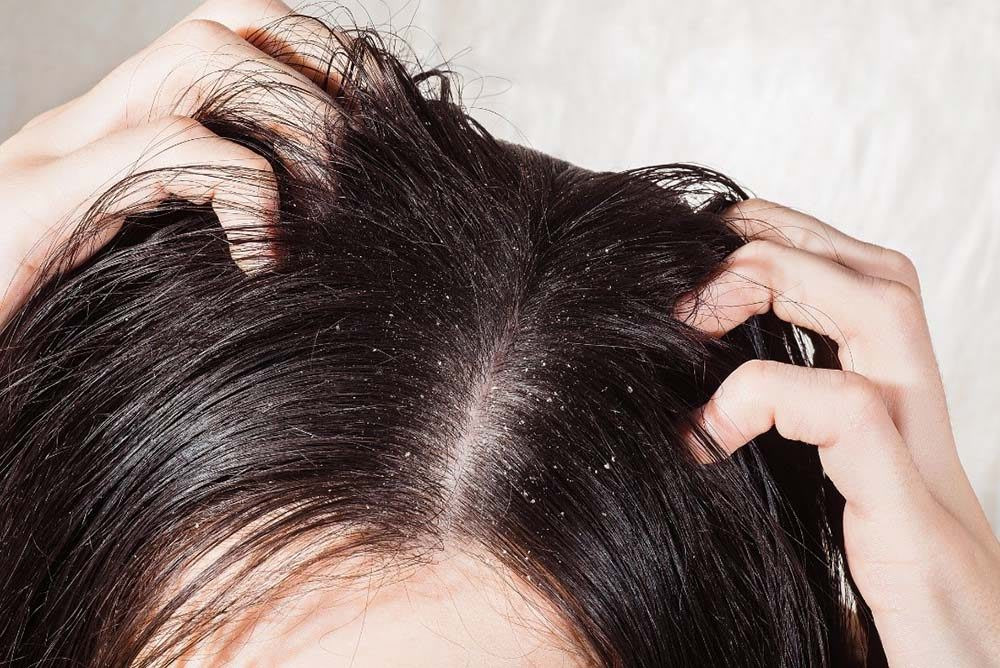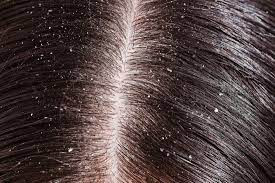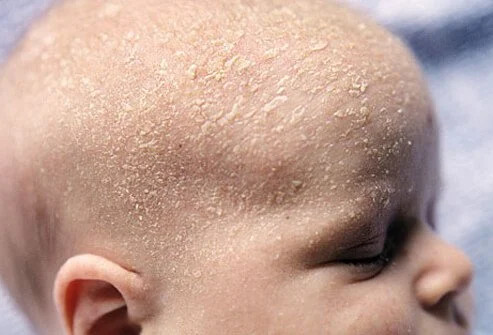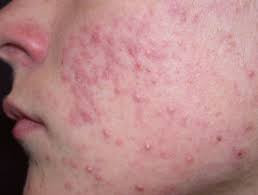Definition
Dandruff is a condition in which the skin on the scalp flakes off. It is non-contagious and harmless, but it can be embarrassing and difficult to treat. Dandruff is also a mild seborrheic dermatitis, an inflammation of the sebaceous glands.
Causes
Dandruff may have several causes, including:
- Irritated or excessively oily skin
- Fungus (Malassezia furfur), which thrives on the oil on the scalps of most adults
- Sensitive to some hair care products (contact dermatitis)
- Other skin conditions, such as atopic dermatitis and psoriasis,
- Shampooing less frequently could cause skin cells to accumulate, flakes off and cause itchiness
- Shampooing too often results in an excessively dry scalp
- Too much exposure to sunlight
- Excessive pressure on the scalp from hats
- Exposure to dust and dirt
Risk factor
Almost everyone can experience dandruff in life, but certain factors can make you more susceptible to dandruff, such as:
- Age. Dandruff usually occurs in young adults and could persist through middle age. However, for some people, this problem can last a lifetime.
- Male. Dandruff is more common in men compared to women.
- Medical conditions. Certain diseases, such as Parkinson's or other neurological diseases, can increase the risk of dandruff. For instance, immune system issues that could result from HIV/AIDS can also be a risk factor.
Symptoms
Signs and symptoms of dandruff may include:
- Flakes on your scalp, hair, eyebrows, beard, mustache, and shoulders
- Itchyness that can be felt on the scalp
- Scaly, crusty scalp in infants with cradle cap
Usually, these signs and symptoms get worse when you're feeling stressed. In addition, dandruff could be commonly found in cold and dry weather.
You may find it difficult to differentiate between dandruff and dry scalp, as the symptoms of these conditions are similar. A dry scalp is related to your skin losing too much water. Besides that, dry scalps can also be caused by using hair products that strip your hair of its natural oils. If you live in a cold and dry climate, you are at risk of developing a dry scalp.
Dandruff can appear in infants within the first two months of life and last several weeks or months. Typically, it appears as yellow, oily, and scaly plaques on the baby's scalp.
Diagnosis
Examining the hair and scalp can help diagnose dandruff. The signs and symptoms of this problem can also be easily recognized.
Management
You can treat dandruff by using anti-dandruff shampoo. When you buy anti-dandruff shampoo, you should read the label on how to use it before using it. You may also find the following ingredients in your anti-dandruff shampoo:
- Ketoconazole is an effective antifungal medicine for all ages
- Selenium sulfide can reduce dandruff by decreasing oil production on the scalp. Not only that, this substance also works as an antifungal medicine
- Zinc pyrithione reduces the rate of yeast development
- Salicylic acid can remove excess dead skin cells
- Tea tree oil is found in many anti-dandruff shampoos. This oil has antifungal and antibacterial properties. However, some people may develop an allergy to tea-tree oil
You can use anti-dandruff shampoos that contain the above ingredients twice a week. On other days, it is recommended that you continue to wash your hair with your regular shampoo. You can use one anti-dandruff shampoo regularly for a month to see its effectiveness. If your dandruff recurs easily, one of the shampoos may become less effective over time. You may consider switching shampoos if this happens.
Anti-dandruff shampoos sometimes need to be left on your hair for a while. Read the instructions to determine how long the shampoo must be left on before rinsing.
Every person may be suited for different therapies. This difference can occur due to race. For example, Caucasians, Asians, and other fair-skinned people may require multiple anti-dandruff shampoos with different ingredients. However, people of African descent may only need to wash their hair with anti-dandruff shampoo once a week. You can also consult a dermatologist about the best product based on your skin and hair type and how to use the product.
If you have a dry scalp, you can treat it by changing your shampoo. You should switch to a milder shampoo that does not contain medicines and has fewer additives that might dehydrate your scalp.
If your baby has dandruff, you can treat it using baby shampoo. You can gently rub the baby's scalp. Furthermore, you can also apply baby oil so that the flaky skin does not accumulate on the scalp.
Your doctor will treat any underlying medical conditions if dandruff is present.
Complications
Dandruff rarely has complications that follow. However, dandruff can also signal the presence of more severe medical conditions such as fungal infections, atopic dermatitis, psoriasis, and so on. Complications can also occur from the dandruff treatment itself, such as irritation. If the hair products irritate your scalp, you should replace them.
Prevention
Some things you can do to prevent dandruff are:
- Maintain good hygiene. Avoid touching your scalp, especially when it feels very itchy. Scratching can increase irritation and cause a vicious cycle between irritation and dandruff. Scratching can also contaminate your hair with dirt from your hands.
- Find the right shampoo for your scalp. The frequency of shampooing should be enough to prevent an oily scalp. Don't overuse products on your scalp, as they can irritate.
- Reduce stress. Stress can aggravate dandruff in certain people. This happens because stress can lower your immune system, allowing the Malassezia fungus to multiply freely. Try to reduce stress by relaxing, practicing yoga, and journaling. You can also write down the types of stress that could impact and trigger your dandruff to avoid them in the future.
- Expose the hair outdoors. This aims to expose the hair and scalp to fresh air, especially if the air is clean, as it can help reduce the oil buildup in the hair.
- Massage the scalp.
- Brush your hair. You can brush your hair, especially when damp, at least twice daily.
- Reduce friction. You can reduce wearing hats and scarves, especially those made from synthetic materials.
When to see a doctor?
Most people with dandruff do not need the help of a doctor to manage their conditions. However, you can consult a general practitioner or dermatologist if your condition does not improve by using anti-dandruff shampoos. You can also consult a doctor if your dandruff is severe and your scalp feels itchy, swollen, or reddish.
You should see a doctor if your child has dandruff and exhibits symptoms that spread throughout the body, such as cracked skin, infection, itching, swelling, or lacerations.
Looking for more information about other diseases? Click here!
- dr Nadia Opmalina
Brazier, Y., & Patel, R. (2020). Dandruff: Causes and treatments. Retrieved 13 May 2022, from https://www.medicalnewstoday.com/articles/152844
Dandruff. (2019). Retrieved 13 May 2022, from https://www.nhs.uk/conditions/dandruff/
Dandruff - Symptoms and causes. (2021). Retrieved 13 May 2022, from https://www.mayoclinic.org/diseases-conditions/dandruff/symptoms-causes/syc-20353850
Marcin, A., & Cobb, C. (2021). Dandruff: How to Get Rid of It, What Causes it, and More. Retrieved 13 May 2022, from https://www.healthline.com/health/dandruff-itchy-scalp











